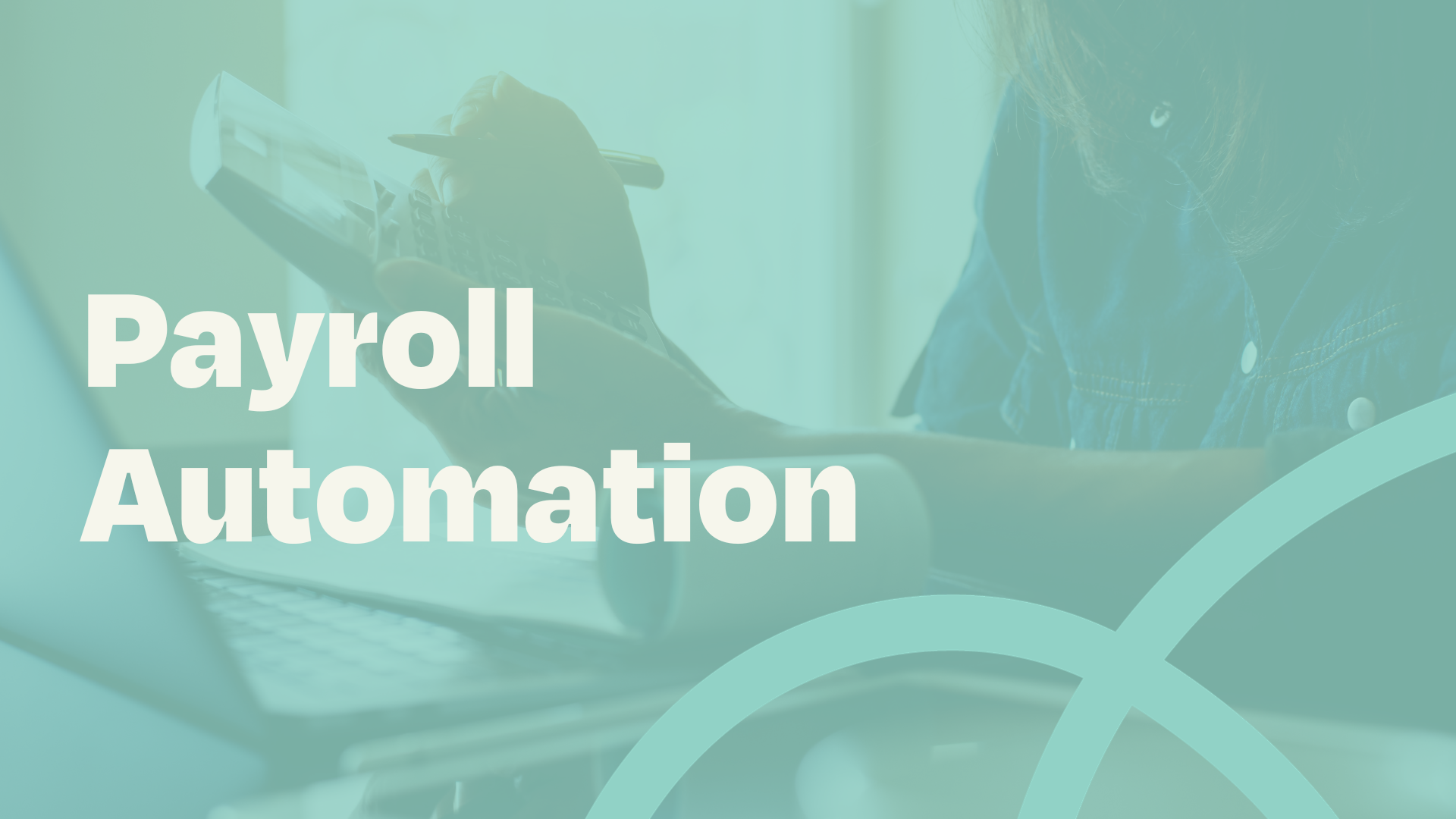14 min read
Navigating Remote Employee Payroll Tax Compliance
As businesses continue to embrace remote work arrangements, navigating the complexities of remote employee payroll tax compliance has become a...
Managing payroll taxes, crucial for legal and effective business operation, can be complex. Accounting Prose simplifies this process, ensuring compliance with laws and support for vital social programs. We provide expert guidance and technology to navigate payroll tax intricacies with ease, helping businesses stay adaptable and focused on growth.
Payroll taxes are a key piece of running your business correctly and legally. They include taxes that both employers and employees pay, such as Social Security and Medicare, and they're crucial for staying compliant with federal and state laws.
At Accounting Prose, we know that managing payroll taxes can seem daunting, but it's part of how we help businesses thrive. We streamline payroll tax management to ensure your business is compliant and your team is supported.
Let's break down what payroll taxes mean for you and explore how we can make them less of a headache.
|
Essential Takeaways
|
Payroll taxes are taxes imposed on employers and employees by federal, state, and local governments. They are calculated as a percentage of the salaries that employers pay their staff. Payroll taxes are split into two main categories: deductions from an employee's wages and taxes paid by the employer based on the employee's wages (1).
Deductions from employee wages include federal income tax and, in some cases, state and local income taxes. Payroll taxes are contributions to Social Security and Medicare under the Federal Insurance Contributions Act (FICA).
Unlike income taxes, which are paid solely by the employee and vary based on income level, payroll taxes are shared responsibilities between employer and employee. The difference lies in their purpose and calculation: income taxes are used for government spending, while payroll taxes specifically support Social Security and Medicare programs (1).
Understanding the various types of payroll taxes is key to ensuring compliance and effective payroll management. Here's a brief overview:
Social Security Tax: Funds benefits for retirees, disabled individuals, and survivors of deceased workers. Both employers and employees contribute.
Medicare Tax: Supports health insurance for people aged 65 and older, along with some younger individuals with disabilities. Contributions are made by both employers and employees.
Federal Unemployment Tax (FUTA): Provides funding to state workforce agencies and supports unemployment benefits. Paid solely by employers.
State Unemployment Taxes (SUTA): Operates similarly to FUTA but is managed at the state level to provide unemployment benefits within each state. Also paid by employers.
These taxes play a crucial role in supporting important social programs and ensuring workers are covered in various situations, from retirement to unemployment (2).
Ensuring payroll taxes are calculated correctly is crucial for both employers and employees to maintain compliance and avoid unnecessary penalties. Here’s a simple breakdown of how to approach it.
Start by figuring out the gross pay for each employee for the pay period. For salaried employees, this is their annual salary divided by the number of pay periods. For hourly employees, multiply their hourly rate by the number of hours worked.
For Social Security Tax, multiply the gross pay by 6.2% (up to the annual wage limit). For Medicare Tax, multiply the gross by 1.45%. Add an additional 0.9% Medicare tax for employees earning more than $200,000.
This varies based on the employee’s W-4 form and the IRS tax tables. Use the IRS withholding calculator or tax tables to determine the amount.
These vary significantly by location. Refer to state and local government websites for specific rates and calculations.
If employees contribute to health insurance, retirement plans, or other benefits, deduct these amounts.
While this process involves several steps—from determining gross pay to calculating specific tax obligations—the key to successful payroll tax management is meticulous attention to detail and staying updated on tax regulations (2).
Mistakes in handling payroll taxes can lead to penalties and interest charges. Being aware of common pitfalls can help you stay compliant:
Underpayment or Late Payment: Late payments and underpayment can result in penalties and interest. Use a calendar with all tax deadlines highlighted.
Not Keeping Updated with Tax Rates and Regulations: Tax rates and laws change. Regularly update your payroll system to reflect these changes.
Classifying Workers Incorrectly: Misclassifying employees as independent contractors can lead to significant penalties. Be sure to understand the criteria for each classification.
Failing to Maintain Accurate Records: Keep detailed payroll records for at least four years to comply with IRS requirements and facilitate audits.
Overlooking State and Local Taxes: Be mindful of all applicable state and local payroll taxes in addition to federal obligations.
By calculating payroll taxes correctly and being aware of common mistakes, you can maintain compliance, support your employees, and avoid any penalties that could cost your business.
Managing payroll taxes goes beyond accurate calculation. Timely and correct filing is also necessary to remain in compliance with tax authorities. Here's what you need to know.
Payroll tax filing deadlines can vary based on the tax type and the frequency of your payroll. Generally, federal payroll taxes must be deposited monthly or semiweekly, and Form 941 (Employer's Quarterly Federal Tax Return) is due quarterly (3).
Key forms include Form 941 for quarterly filing, Form W-2 for annual reporting to employees, and Form W-3, which is sent to the Social Security Administration along with copies of W-2 forms. Employers also need to file Form 940 annually for Federal Unemployment Tax (FUTA) (3).
Beyond federal taxes, be aware of state and local filing requirements, which can include additional forms and different deadlines.
Staying ahead of payroll tax filing requirements is essential for any business aiming to maintain compliance and avoid penalties. By keeping track of filing deadlines, understanding which forms are necessary, and being aware of state and local tax obligations, you can ensure that your payroll taxes are handled efficiently and accurately.
Professional payroll services can transform the complex, time-consuming process of managing payroll taxes into a streamlined, stress-free operation:
Compliance Assurance: With experts overseeing your payroll taxes, you're less likely to face penalties for late or incorrect filings. At Accounting Prose, our Payroll Services stay current with changing tax laws to ensure compliance.
Time and Cost Savings: Outsourcing payroll management frees up your time to focus on core business activities. Additionally, it can be more cost-effective than managing payroll in-house, especially when considering the potential costs of errors.
Access to Expertise: Professional services provide access to specialists with deep knowledge of payroll and tax regulations, ready to handle complex situations or offer guidance on best practices.
Enhanced Security: Payroll services often offer advanced security measures to protect sensitive data, reducing the risk of fraud or security breaches.
Leveraging professional payroll services can be a game-changer for your business, offering not just peace of mind but a strategic advantage. By ensuring compliance, saving valuable time and resources, granting access to specialized knowledge, and offering top-tier security for your payroll data, these services allow you to focus on what you do best—growing your business.
Payroll Taxes are always evolving, presenting new challenges and opportunities for businesses. As we look toward the future, several trends are expected to shape the way payroll taxes are managed.
The push toward digitalization in payroll processes is undeniable. The adoption of automated payroll systems is set to grow, streamlining payroll management, enhancing accuracy, and minimizing the risk of errors.
This shift not only promises greater efficiency but also offers businesses the agility needed to respond to changing regulations swiftly.
The rise of remote work has introduced complex tax considerations for businesses, particularly those with employees spread across different states or countries. This trend underscores the necessity for flexible payroll solutions capable of handling diverse tax requirements, ensuring businesses remain compliant regardless of where their employees are based.
Businesses should prepare for ongoing adjustments in tax legislation, including changes in tax rates, wage thresholds, and regulations. These changes often reflect broader economic and social developments, such as shifts in healthcare policy or responses to economic conditions.
Being proactive and staying informed about these changes will be crucial for businesses to adapt their payroll processes accordingly and maintain compliance.
By understanding filing requirements, recognizing the value of professional payroll services, and staying informed on trends, businesses can effectively manage payroll taxes, ensuring compliance and contributing to overall success.
Managing payroll taxes is an essential part of running your business responsibly and ensuring compliance. But it doesn’t have to be a chore that looms over you every pay period. With the right approach, it becomes a meaningful contribution to the well-being of your employees and society, supporting your team and keeping your business compliant.
Here at Accounting Prose, we’re not your average accountants. We’re a tech-forward, agile team that thrives on making the complex simple. Payroll taxes? We’ve got them down to an art form. With our blend of top-tier software and expert know-how, we turn what could be a headache into a seamless part of your routine.
We’re on a mission to ensure that payroll taxes are something you can handle with your eyes closed (though we recommend keeping them open). Let us show you how mastering payroll taxes with Accounting Prose can be a smooth, worry-free part of your business operations, setting you up for success and growth.
Ready to transform how you handle payroll taxes? Talk with a Payroll Pro now about how Accounting Prose can empower your business to tackle payroll with confidence, ensuring compliance, accuracy, and peace of mind every step of the way.
References:

14 min read
As businesses continue to embrace remote work arrangements, navigating the complexities of remote employee payroll tax compliance has become a...

32 min read
Gusto Payroll is a cloud-based payroll solution designed to simplify and streamline the payroll process for businesses. With a focus on automation,...

17 min read
Running a small business often feels like a high-wire balancing act. As an owner, you're constantly juggling various tasks: meeting deadlines,...
